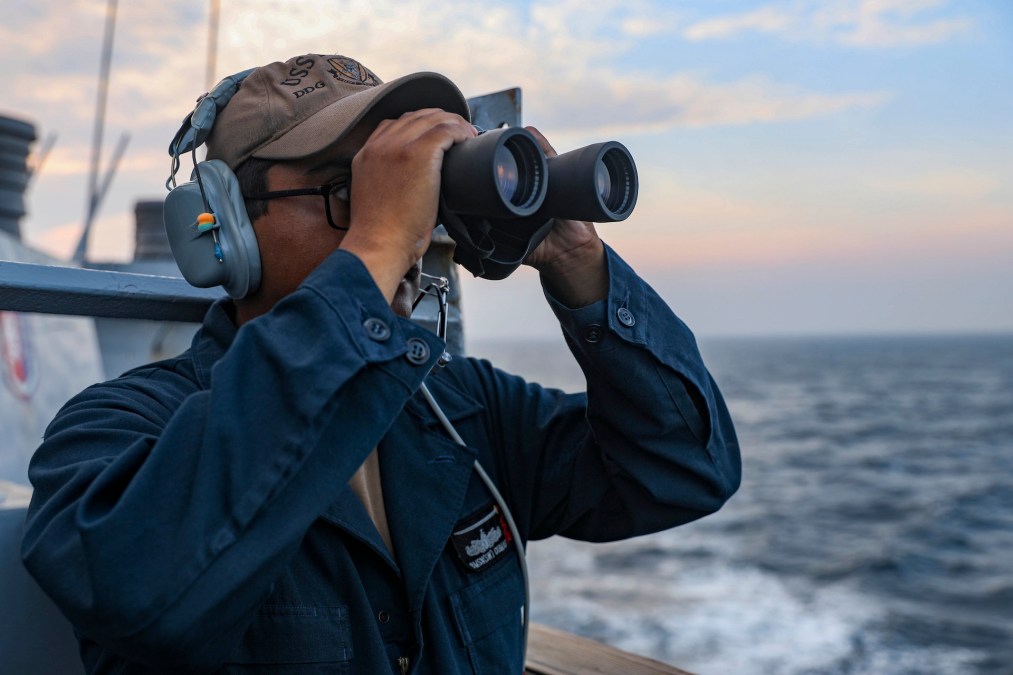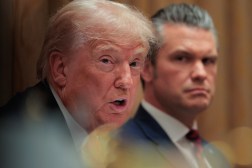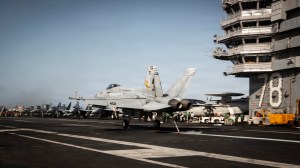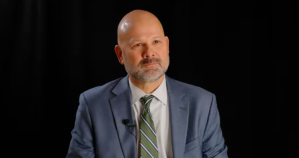Navy looking to increase cyber partnerships with foreign nations

The Navy wants to increase its collaboration in the cyber domain with allies and other international partners to improve interoperability and the sharing of tactics.
The department’s first cyber strategy, released in November, calls for greater cooperation between the organization and foreign countries.
“We will engage with Allied and friendly nations to exchange best practices, share appropriate information, and coordinate our efforts in cyberspace,” it states.
Officials noted that there is a lot to be gained, in terms of tactics and tools, through greater partnership.
“We share our tools, we share the intelligence — and so the better integrated we are, the more successful we will be. A big part of this, again, is learning from each other. We learn as much from them as they learned from us,” Scott St. Pierre, the Department of the Navy’s acting principal cyber advisor, told reporters during a media call Friday. “Our allied coalition partners bring intelligence, they bring unique ways of looking at both defensive cyber operations as well as offensive cyber operations.”
Officials in the past have noted that in many cases, allies and partners may have certain capabilities, access and even authorities that are not immediately available to the U.S. Teaming up with these nations to understand capabilities, accesses and targets improves operations because in some cases these countries can act when the U.S. might not be able to.
St. Pierre noted that this push for greater international cooperation is in line with efforts by U.S. Cyber Command.
“That integrated approach is one of the key elements that U.S. Cyber Command is working, as well as each of the component cyber commands,” he said. “They work with joint and allied partners every single day in a cooperative fashion. It’s been tremendously beneficial to help moving us forward not only on establishing the right defensive postures, but also learning from what they know in terms of the intel they collected and how they actually execute offensive cyber operations.”
In fact, Cybercom’s leader Gen. Paul Nakasone has made international partnerships a key pillar of the organization’s approach. To date, its personnel have deployed over 55 times to various nations across every geographic combatant command for so-called hunt forward operations, which involve physically sending defensively teams from the Cyber National Mission Force (CNMF) to foreign nations at their invitation to look for malicious activity on their networks. And each year, more and more countries have participated in Cyber Flag, the command’s flagship exercise.
Similarly, the Air Force recently ran NATO’s largest defensive cyber exercise where officials said the sharing of tactics is a key byproduct for both the U.S. and allied nations.
The most complicated challenge regarding cooperation with partners and allies is the various levels of capability they each bring to the table, according to St. Pierre.
“In some instances, we’re doing some training, in other instances were looking over shoulder and helping them out, but it takes a lot of time and resources to be able to go do that. But I will tell you that the investment is worth it,” he said.
A common refrain from U.S. officials is greater partnerships and alliances are effective counterweights to key competitors such as China.
“We know that in the events that are going on in the world, what separates us from our adversaries [is] the fact that we have allies around the globe who are critical to the way we execute every single day. We’ll never match the numbers of China until we bring all of our allies and coalition partners together. As we’ve seen in years past, history proves out, having a lot of friends is a good thing,” he said. “Developing those relationships, exercising those relationships through real-world exercises, helping to train them and then getting them to a point where they’re self sustaining — all very critical to the path forward.”






